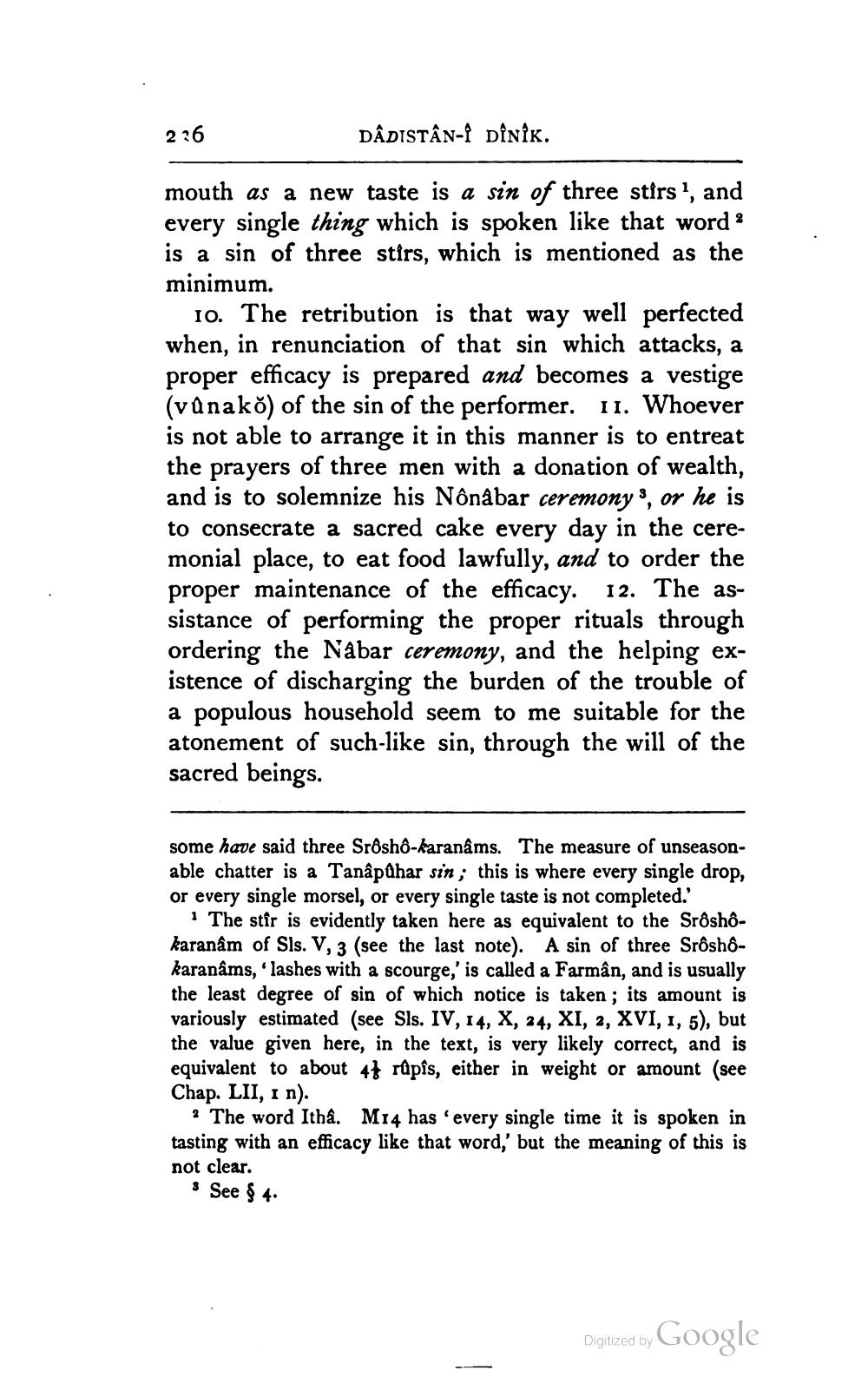________________
226
DÂDISTÂN-I DÎNIK.
mouth as a new taste is a sin of three stirs !, and every single thing which is spoken like that word ? is a sin of three stirs, which is mentioned as the minimum.
10. The retribution is that way well perfected when, in renunciation of that sin which attacks, a proper efficacy is prepared and becomes a vestige (vů nako) of the sin of the performer. 11. Whoever is not able to arrange it in this manner is to entreat the prayers of three men with a donation of wealth, and is to solemnize his Nônábar ceremony 3, or he is to consecrate a sacred cake every day in the ceremonial place, to eat food lawfully, and to order the proper maintenance of the efficacy. 12. The assistance of performing the proper rituals through ordering the Nabar ceremony, and the helping existence of discharging the burden of the trouble of a populous household seem to me suitable for the atonement of such-like sin, through the will of the sacred beings.
some have said three Srôsho-karanams. The measure of unseasonable chatter is a Tanâpühar sin; this is where every single drop, or every single morsel, or every single taste is not completed.'
1 The stîr is evidently taken here as equivalent to the Srôshokaranam of Sls. V, 3 (see the last note). A sin of three Srôshokaranams, lashes with a scourge,' is called a Farmân, and is usually the least degree of sin of which notice is taken ; its amount is variously estimated (see Sls. IV, 14, X, 24, XI, 2, XVI, 1, 5), but the value given here, in the text, is very likely correct, and is equivalent to about 4+ růpis, either in weight or amount (see Chap. LII, 1 n).
. The word Itha. M14 has 'every single time it is spoken in tasting with an efficacy like that word,' but the meaning of this is not clear.
3 See $ 4.
Digitized by Google




